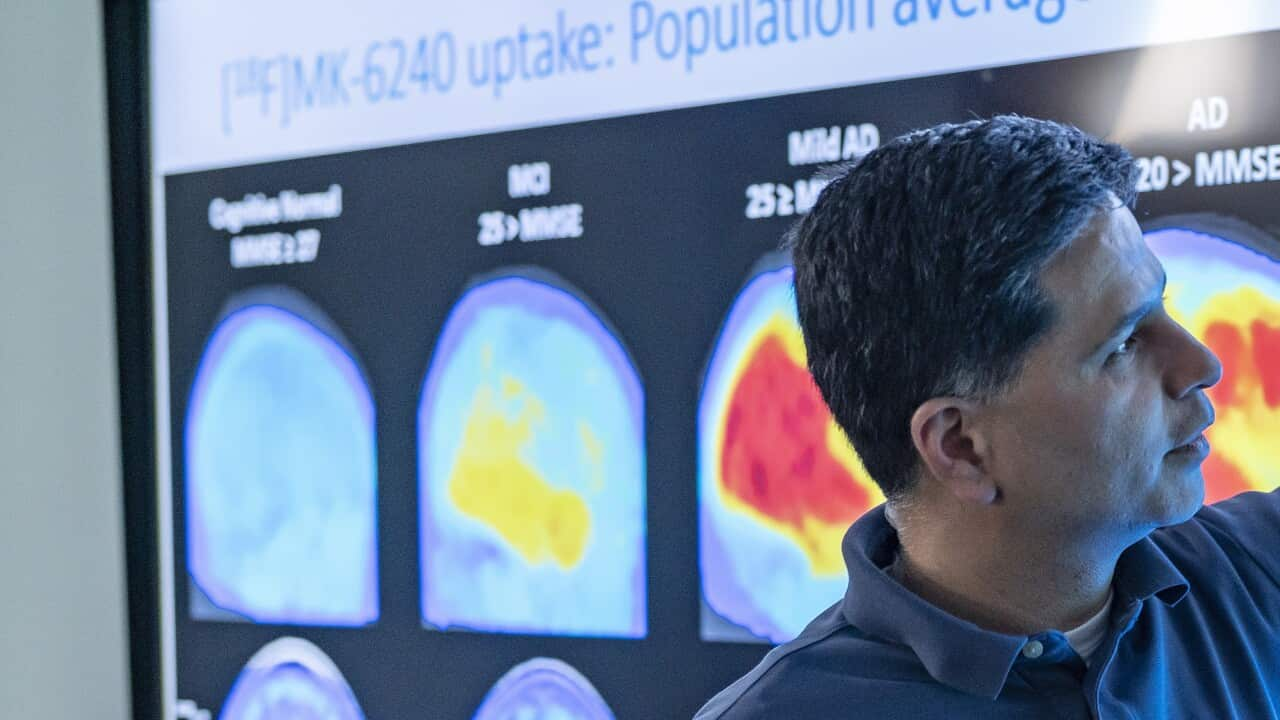Aaducanumab, more commonly referred to as Aduhelm, is a drug produced by Biogen. The US Food and Drug Administration says it granted approval to the drug based on results that seemed "reasonably likely" to benefit Alzheimer's patients.
It's the only drug that US regulators say can likely treat Alzheimer's disease, rather than manage symptoms like anxiety and insomnia.
The decision, that could impact millions of older Americans and their families, has sparked disagreements among physicians, medical researchers and patient groups.
Alzheimer's is the most common of dementias. Central to the disease is the build-up of abnormal proteins in the brain.
It then becomes an irreversible, progressive brain disorder that slowly destroys memory and thinking skills and the ability to carry out simple tasks. It leads to brain cell loss and chemical changes that cause memory loss.
The new drug targets amyloid by creating an immune response.
"Drugs we've had to date, which were licensed nearly 20 years ago, boost the brain chemicals within in patients with Alzheimer's disease, but do nothing to tackle the underlying processes that we believe, so the accumulation of these abnormal proteins. This drug, aducanumab, was designed to clear amyloid protein from the brain. And it's something that we think amyloid accumulation, we think, starts many, many years before symptoms."
The new drug is to be given as an infusion every four weeks. Biogen says the drug would be priced at approximately $56,000 for a typical year's worth of treatment, and the price would not be raised for four years.
Most patients won't pay anywhere near that amount thanks to insurance coverage and other discounts. The company says it aims to complete its follow-up trial of the drug by 2030.
Click on the player above to listen to the interview in Punjabi.
People in Australia must stay at least 1.5 metres away from others. Find out what restrictions are in place for your state or territory.
Testing for coronavirus is now widely available across Australia. If you are experiencing cold or flu symptoms, arrange a test by calling your doctor or contact the Coronavirus Health Information Hotline on 1800 020 080.The federal government's coronavirus tracing app COVIDSafe is available for download from your phone's app store.
SBS is committed to informing Australia’s diverse communities about the latest COVID-19 developments. News and information is available in 63 languages at http://www.sbs.com.au/coronavirus
Listen to SBS Punjabi Monday to Friday at 9 pm. Follow us on Facebook and Twitter.




